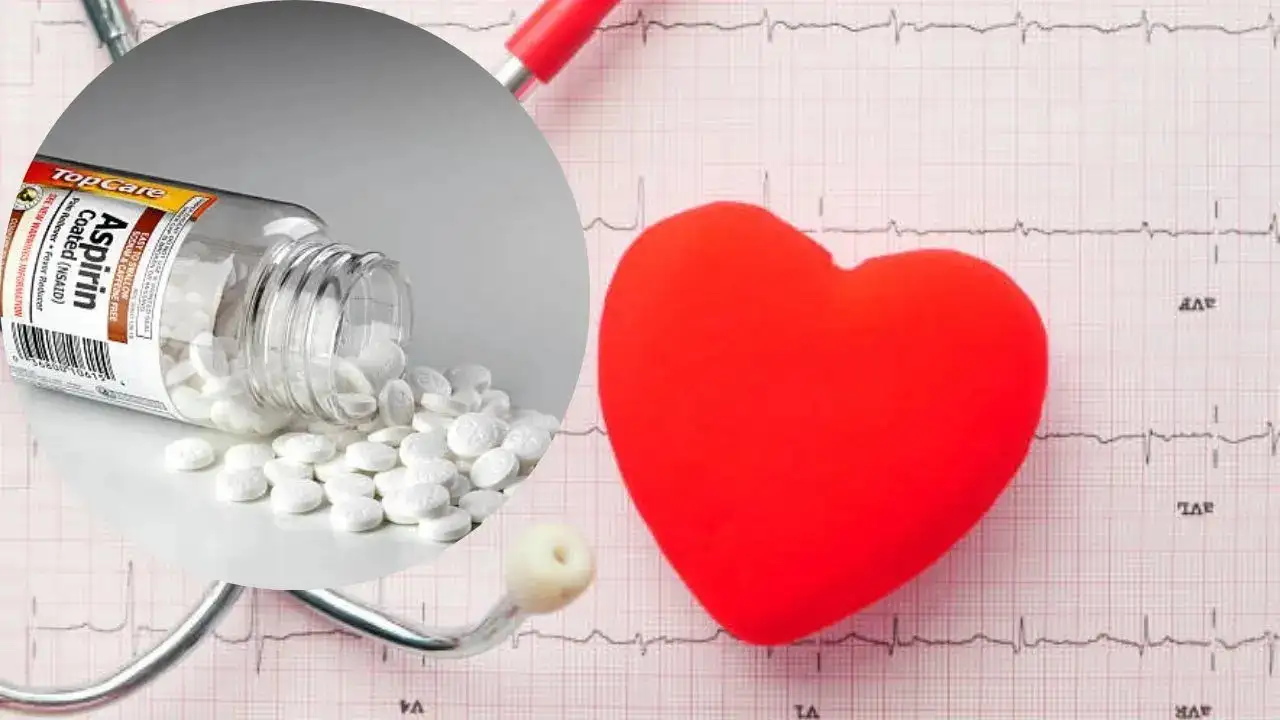
Experts recommend taking low-dose aspirin to prevent heart attacks and strokes in those who are at high risk of them
Scientists say a common prescription drug has been linked to lower rates of heart attack and stroke without any major risk of side effects like bleeding.
Experts recommend taking low-dose aspirin to prevent heart attacks and strokes in those who are at high risk of them. However, doctors say you must always consult with your healthcare provider before taking the pill, which works by preventing blood clots from forming in arteries. According to the American Heart Association, aspirin inhibits the activity of platelets - tiny cells that clump together to form clots. Low-dose aspirin is often recommended for those who are battling cardiovascular diseases or those who have already had a heart attack or stroke.
Since aspirin helps to stop your blood from clotting, it can also make you bleed more easily. Suppose you get a nosebleed or bruise more easily, and if you cut yourself, the bleeding can take longer than normal to stop. According to the study published in the journal, BMJ supports the use of P2Y12 therapy instead of aspirin for long-term prevention.
Giving the anti-clotting drug to patients with coronary artery disease was associated with lower rates of cardiovascular death, heart attack, and stroke compared with traditional aspirin, with no increased risk of major bleeding.
What are P2Y12 inhibitors?
Experts say P2Y12 inhibitors are usually given to patients alongside aspirin after percutaneous coronary intervention, also known as coronary angioplasty, a minimally invasive procedure used to open blocked or narrowed coronary arteries. It involves inserting a catheter into an artery and guiding it to the heart, where a small balloon is inflated to widen the artery and a stent may be placed to keep it open.
After several months, patients are usually switched from dual therapy to lifelong aspirin, but some trials have suggested a P2Y12 inhibitor may be more effective for long-term prevention than aspirin.
So, in the new study, researchers analysed individual patient data from five randomised clinical trials involving 16,117 patients who were assigned to either a P2Y12 inhibitor or aspirin after completing dual therapy. When they were followed up four years later, P2Y12 inhibitor therapy was associated with a 23 per cent lower risk of an outcome that combined cardiovascular death, heart attack, or stroke, compared with aspirin, with no significant difference in major bleeding.
Who can benefit from aspirin therapy?
You may benefit from taking low-dose aspirin every day if you have:
- Diabetes
- High blood pressure
- A history of smoking
-
Hyperlipidemia or high cholesterol levels
- Coronary artery disease
- Peripheral artery disease
- History of heart attack or stroke
Can you overdose on low-dose aspirin?
Doctors say adults who take 81 milligrams of aspirin daily are not in danger of an overdose. However, you could experience sudden or acute aspirin poisoning if you take a lot of aspirin at once, for example, about 30 tablets of 325 milligrams each if you weigh 150 pounds.
Aspirin can lead to stomach bleeding, irritation, and ulcers in some people. You may also experience abdominal pain, heartburn, and nausea and vomiting.
